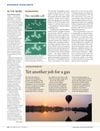 September 2022 in “JAAD Case Reports”
September 2022 in “JAAD Case Reports” COVID-19 may worsen hair loss in people with a certain type of scarring alopecia, but early treatment can help improve symptoms and hair regrowth.
 1 citations,
December 2022 in “Pharmaceuticals”
1 citations,
December 2022 in “Pharmaceuticals” Noni fruit extract, specifically the FEA-3 sub-fraction, can increase hair growth and reduce baldness in male rabbits, potentially acting like common hair loss treatments.
 353 citations,
February 2022 in “Nature Immunology”
353 citations,
February 2022 in “Nature Immunology” Long-haul COVID can cause lasting symptoms affecting many body systems and may be linked to ongoing inflammation and immune system issues.
 1 citations,
August 2023 in “Frontiers in immunology”
1 citations,
August 2023 in “Frontiers in immunology” Traditional Chinese medicinal foods may help manage long-term post-COVID symptoms.
 185 citations,
August 2020 in “Mayo Clinic Proceedings”
185 citations,
August 2020 in “Mayo Clinic Proceedings” Men are more likely to have severe COVID-19 cases and fatalities than women due to factors like lifestyle, aging, and biological differences.
 18 citations,
November 2021 in “Anais Brasileiros de Dermatologia”
18 citations,
November 2021 in “Anais Brasileiros de Dermatologia” COVID-19 can cause various skin issues, like rashes and lesions, which are more common in younger patients and can be linked to more severe complications.
 26 citations,
August 2020 in “Dermatology Research and Practice”
26 citations,
August 2020 in “Dermatology Research and Practice” COVID-19 can cause various skin problems, including reactions to protective gear and medication, with different rates reported worldwide, and more research is needed to fully understand these skin issues.
 October 2020 in “Проблемы эндокринологии”
October 2020 in “Проблемы эндокринологии” Men with higher androgen levels may have severe COVID-19 symptoms, but those on antiandrogen therapy are less likely to contract the virus and have milder symptoms. Anti-androgen drugs could potentially treat COVID-19, but more research is needed.
 21 citations,
February 2021 in “BMJ case reports”
21 citations,
February 2021 in “BMJ case reports” Anabolic steroid users may face higher risk of severe COVID-19.
 December 2023 in “Health Information Jurnal Penelitian”
December 2023 in “Health Information Jurnal Penelitian” Post-COVID syndrome causes long-lasting symptoms like fatigue, breathing issues, and anxiety.
 February 2023 in “Journal of clinical medicine research”
February 2023 in “Journal of clinical medicine research” Zinc acetate hydrate may help reduce fatigue and hair loss in post-COVID-19 patients.

No single biomarker is reliable enough for diagnosing and assessing SLE.
 December 2023 in “Y Dược học”
December 2023 in “Y Dược học” Older adults in Vietnam often experience hair loss after COVID-19, especially women, singles, and those hospitalized.
 February 2024 in “Journal of Health Science and Medical Therapy”
February 2024 in “Journal of Health Science and Medical Therapy” ADAM17 could be a potential target for treating PCOS.
 32 citations,
January 2021 in “Molecules”
32 citations,
January 2021 in “Molecules” Some Middle Eastern plants may help treat diabetes and could be alternatives to current drugs, but more research is needed.
 25 citations,
August 2021 in “Irish Journal of Medical Science (1971 -)”
25 citations,
August 2021 in “Irish Journal of Medical Science (1971 -)” COVID-19 infection can significantly cause temporary hair loss.
 18 citations,
September 2020 in “BMC Public Health”
18 citations,
September 2020 in “BMC Public Health” Non-Kuwaiti COVID-19 patients had worse health outcomes than Kuwaitis, likely due to poorer socioeconomic conditions.
 October 2005 in “Nature reviews. Molecular cell biology (Print)”
October 2005 in “Nature reviews. Molecular cell biology (Print)” Hairless protein is key for hair growth, cell differences cause gene expression variation, and the N-end rule pathway senses nitric oxide for protein breakdown.
 November 2022 in “Medicina”
November 2022 in “Medicina” COVID-19 may cause temporary hair loss due to the body's immune response.
3 citations,
August 2022 in “International Journal of Molecular Sciences” COVID-19 can cause hair loss, and treatments like PRP and stem cells might help.
 April 2021 in “European medical journal”
April 2021 in “European medical journal” A COVID-19 patient had severe and long-lasting skin issues and unusual hair loss.
 14 citations,
January 2021 in “Cureus”
14 citations,
January 2021 in “Cureus” The AndroCoV Clinical Scoring is a quick, accurate, and free tool for diagnosing COVID-19.
 49 citations,
May 2020 in “Frontiers in Public Health”
49 citations,
May 2020 in “Frontiers in Public Health” Insulin resistance linked to obesity may increase COVID-19 severity.
 May 2023 in “British Journal of Dermatology”
May 2023 in “British Journal of Dermatology” COVID-19 can cause long-term skin problems and has changed how skin doctors work.
 96 citations,
October 1981 in “Drugs”
96 citations,
October 1981 in “Drugs” Minoxidil effectively treats severe hypertension but may cause side effects, so careful monitoring is needed.
 1 citations,
February 2022 in “The Journal of Urology”
1 citations,
February 2022 in “The Journal of Urology” Certain drugs like Dutasteride and Finasteride might help fight SARS-CoV-2 by increasing levels of a steroid called DHEA, which can protect the heart and increase nitric oxide to counteract the virus.
1 citations,
March 2022 in “Irish Journal of Medical Science” Men with androgenetic alopecia and hypertension may experience more severe COVID-19.
4 citations,
December 2021 in “Pharmacological Reports” Metformin is less effective in men with early-onset hair loss.
 1 citations,
January 2023 in “Revista da Associação Médica Brasileira”
1 citations,
January 2023 in “Revista da Associação Médica Brasileira” Experts agree on the need for standardized definitions and education for post-COVID-19 conditions.
 3 citations,
February 2008 in “Basic and clinical dermatology”
3 citations,
February 2008 in “Basic and clinical dermatology” Telogen Effluvium is a hair loss condition where treatment involves identifying and managing its triggers.


























